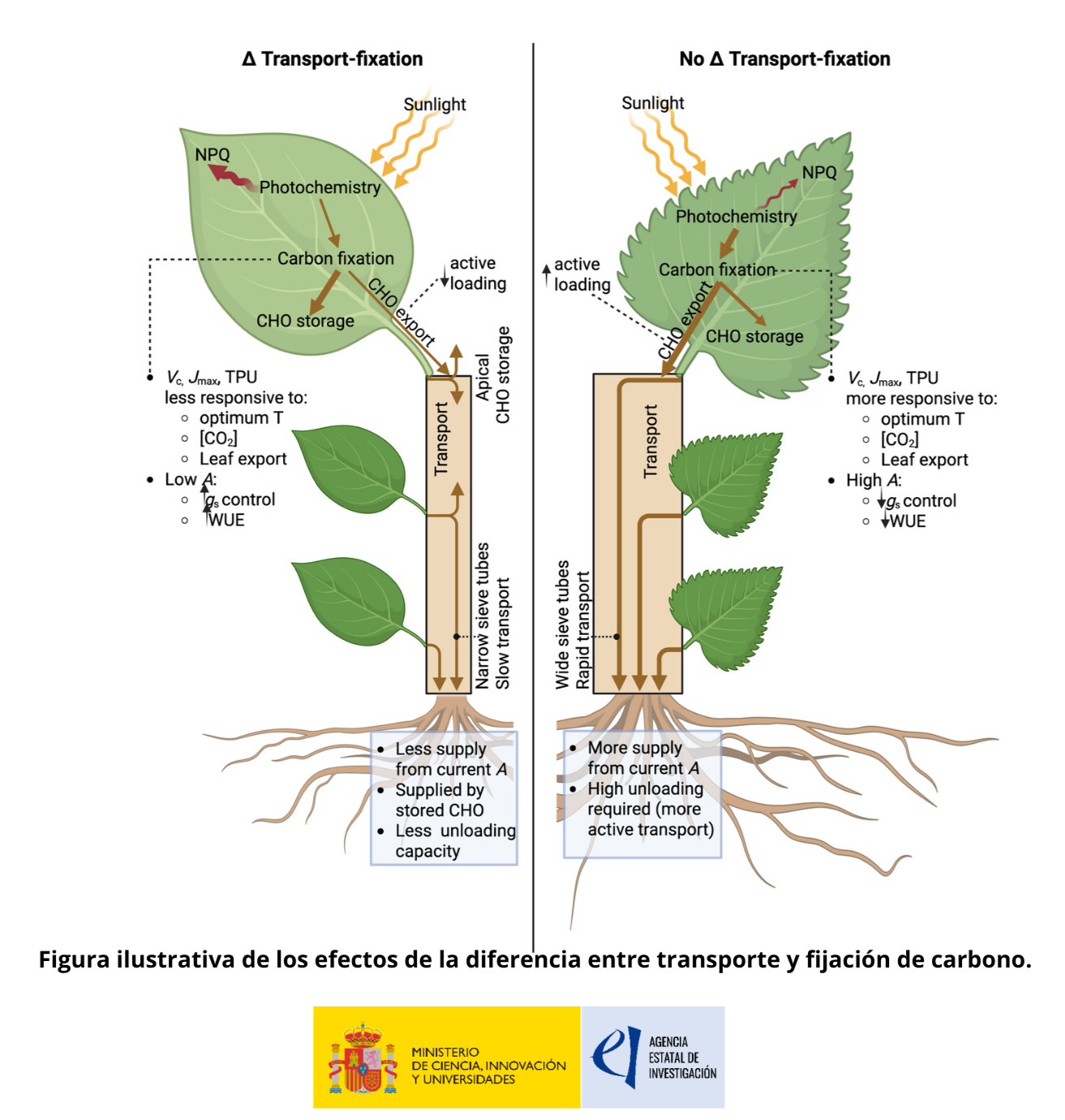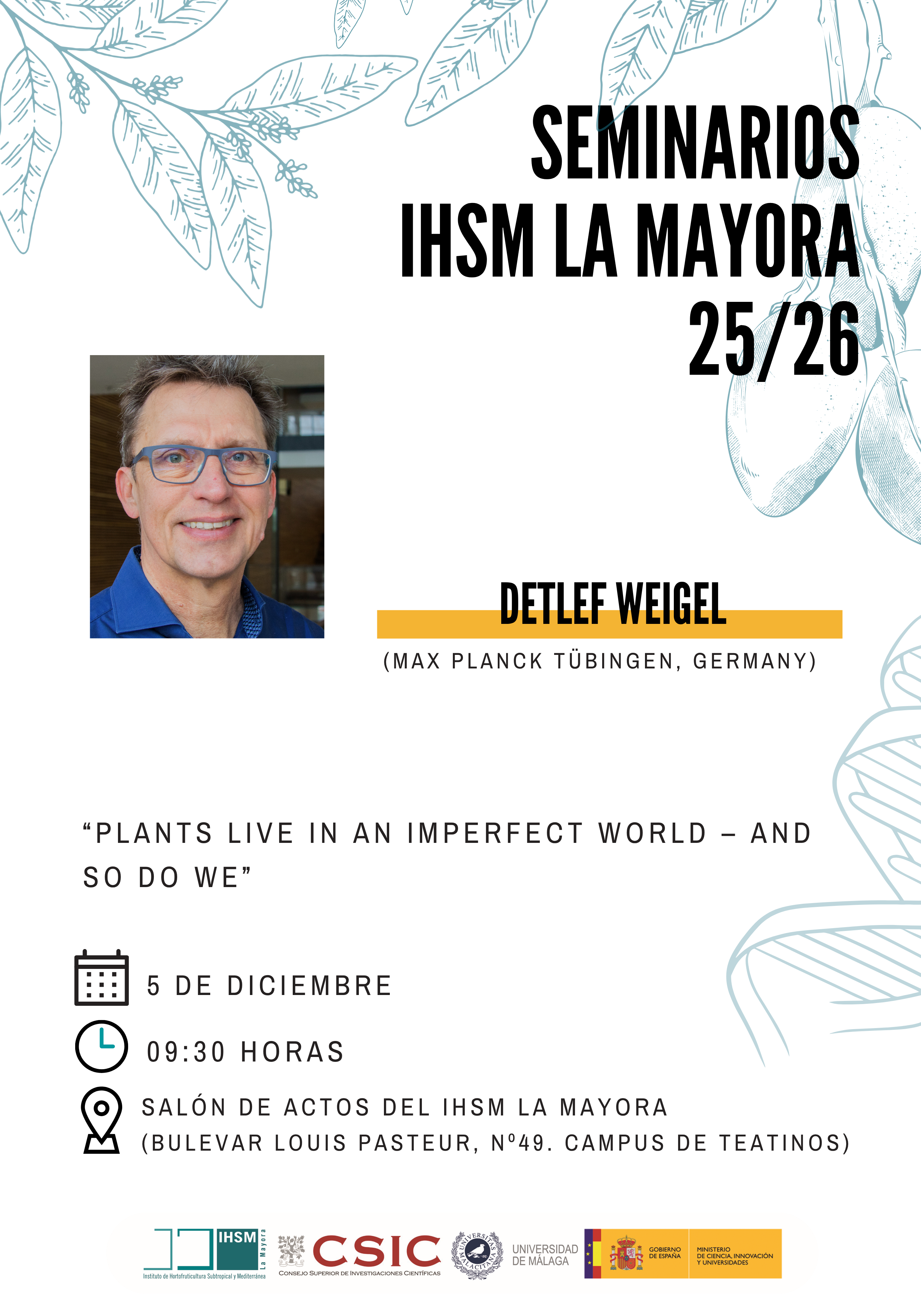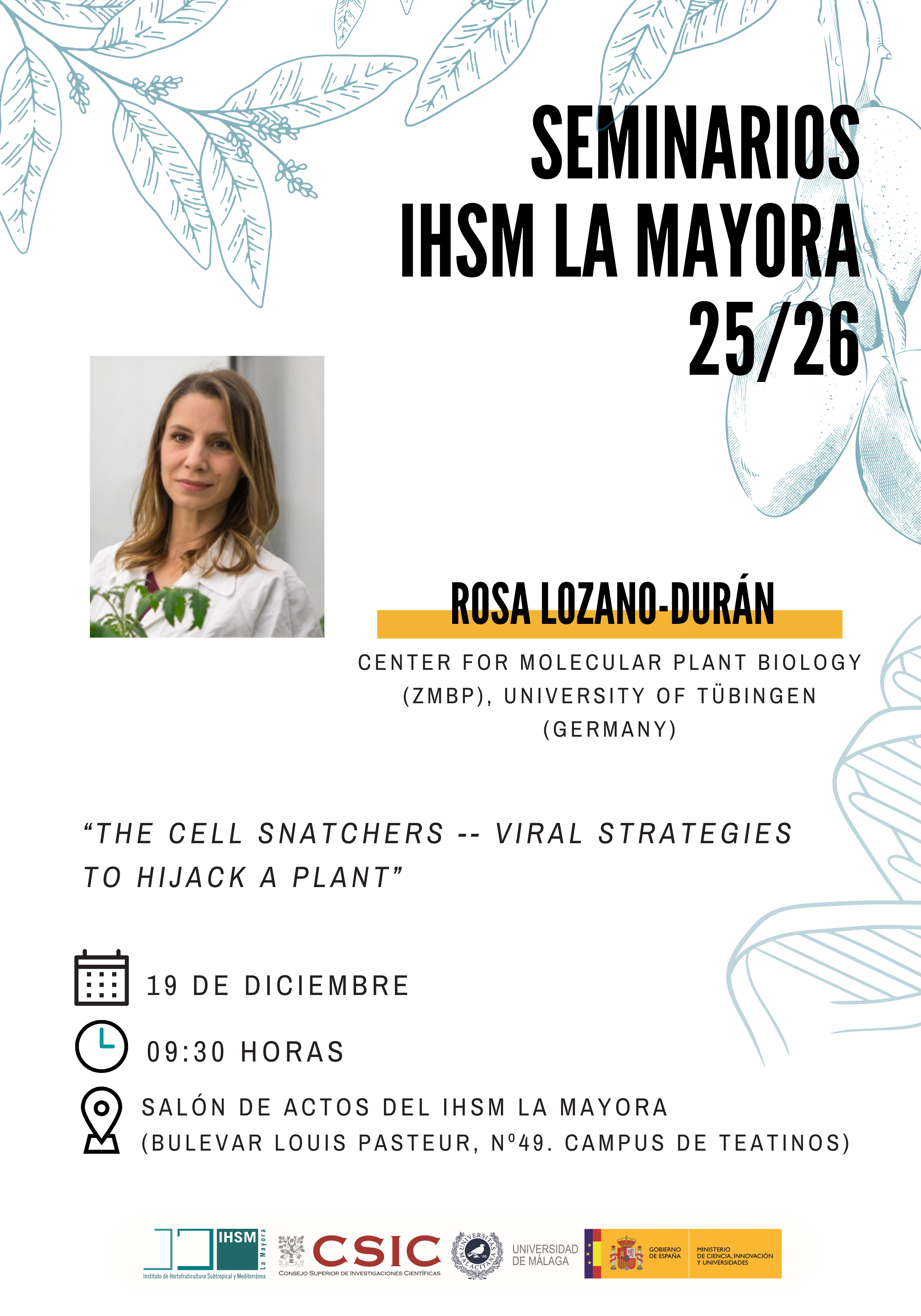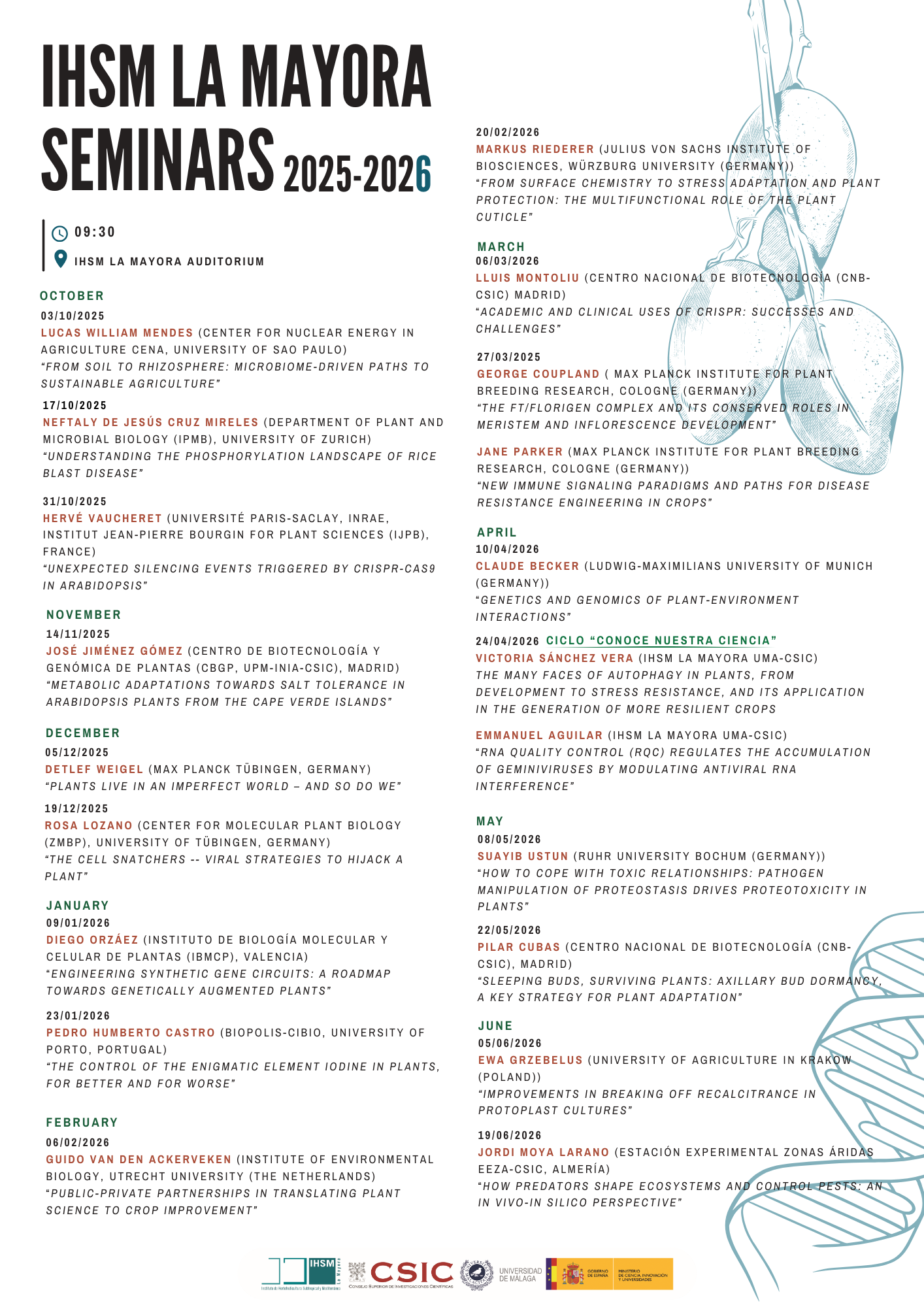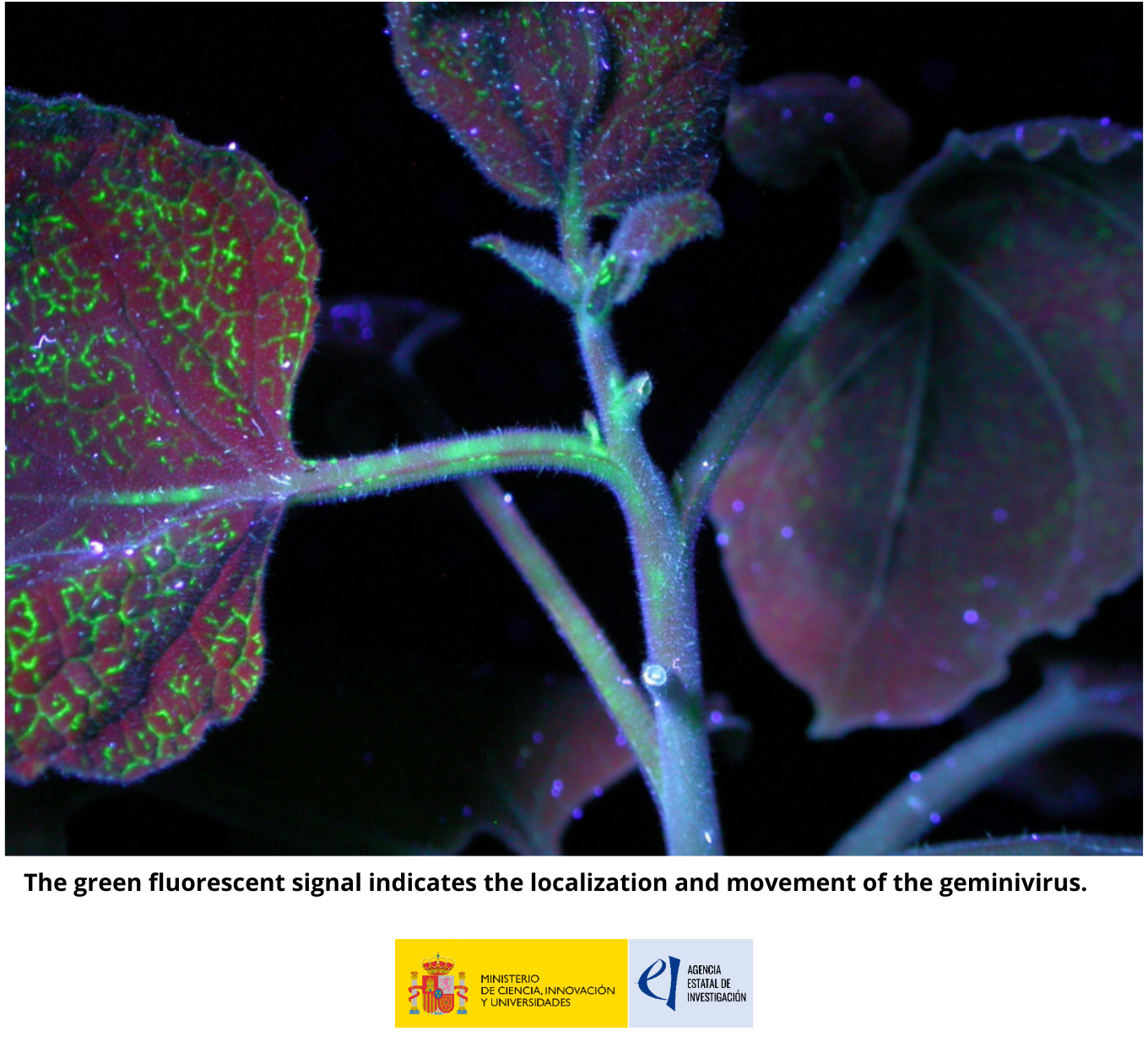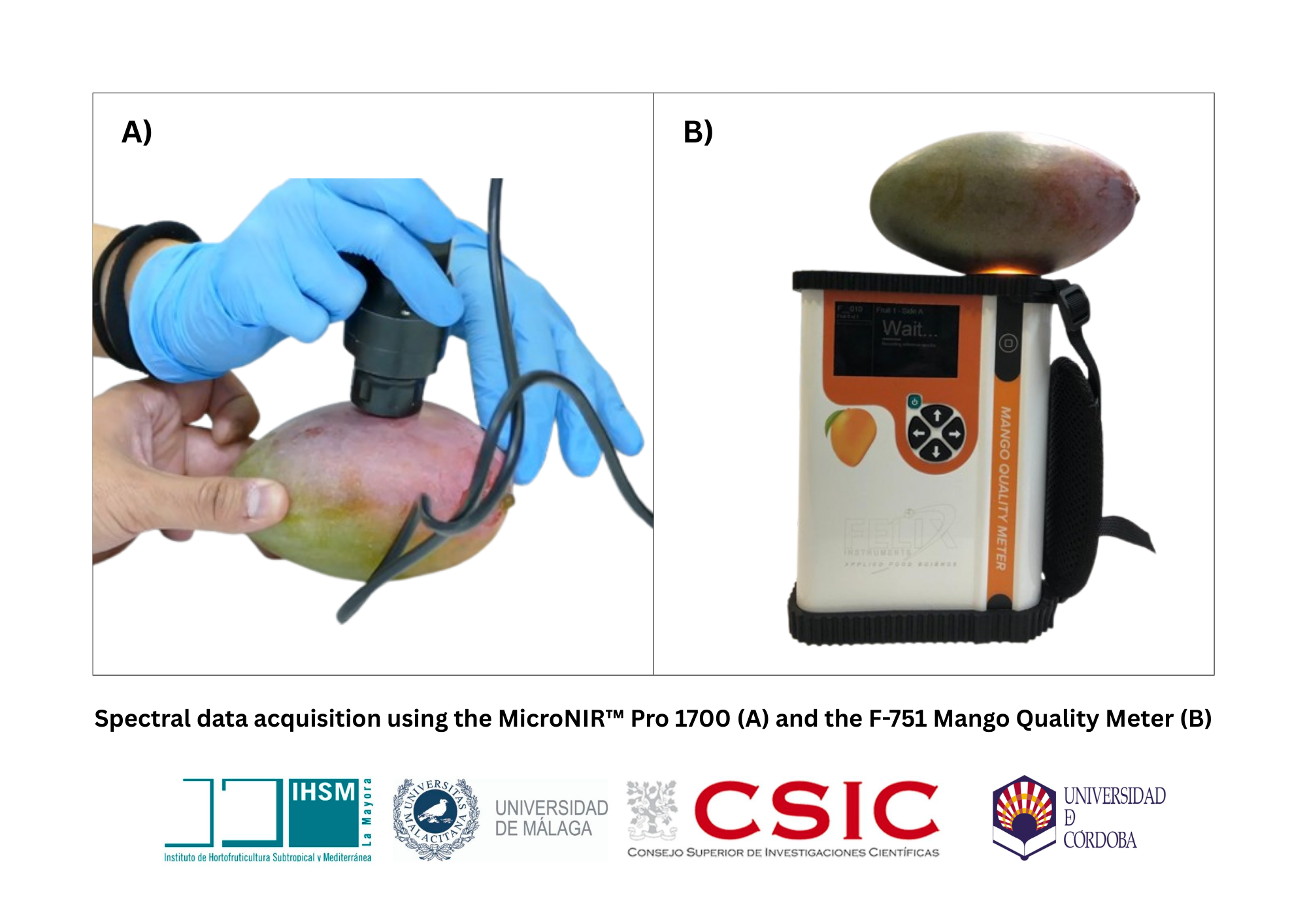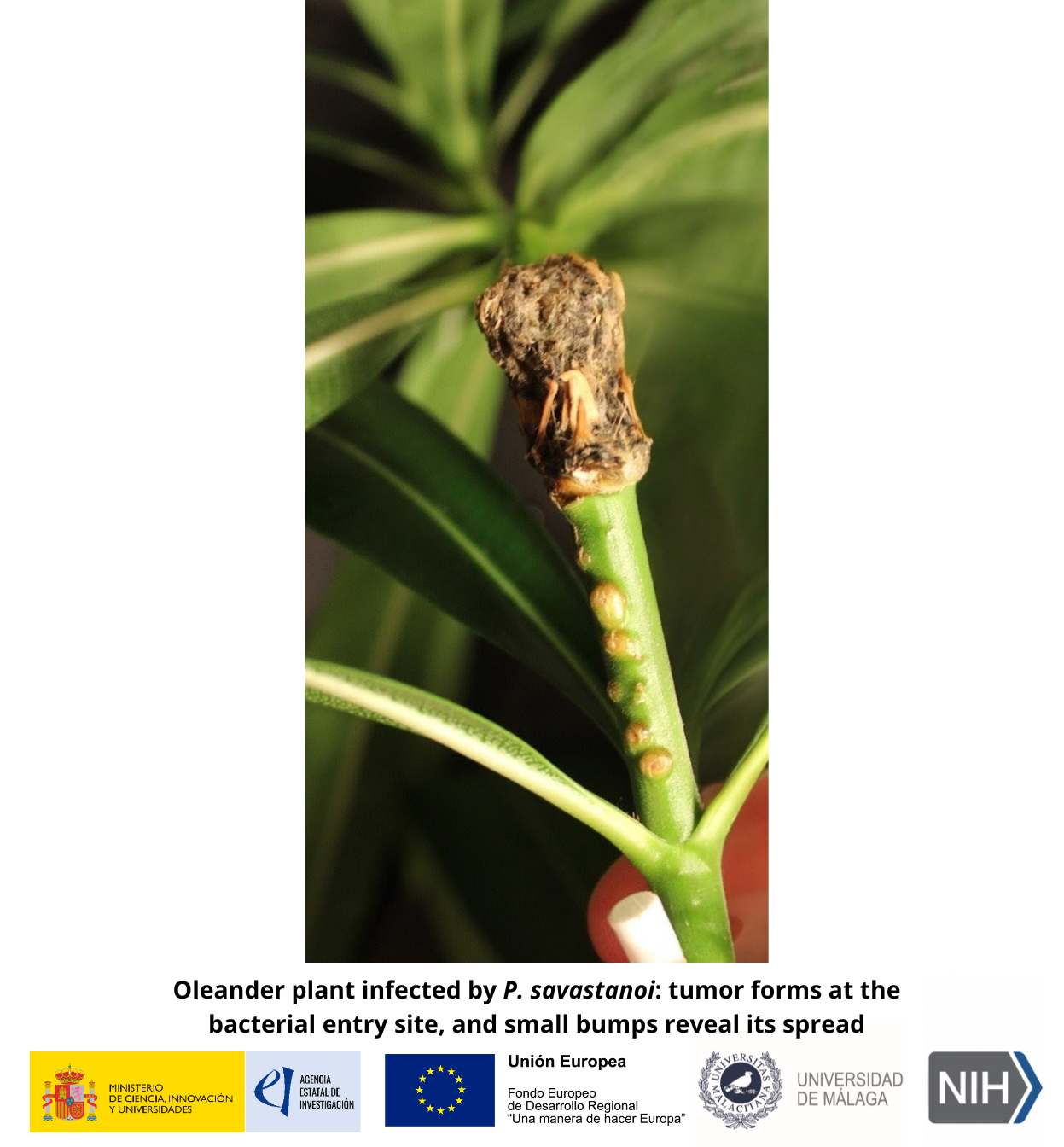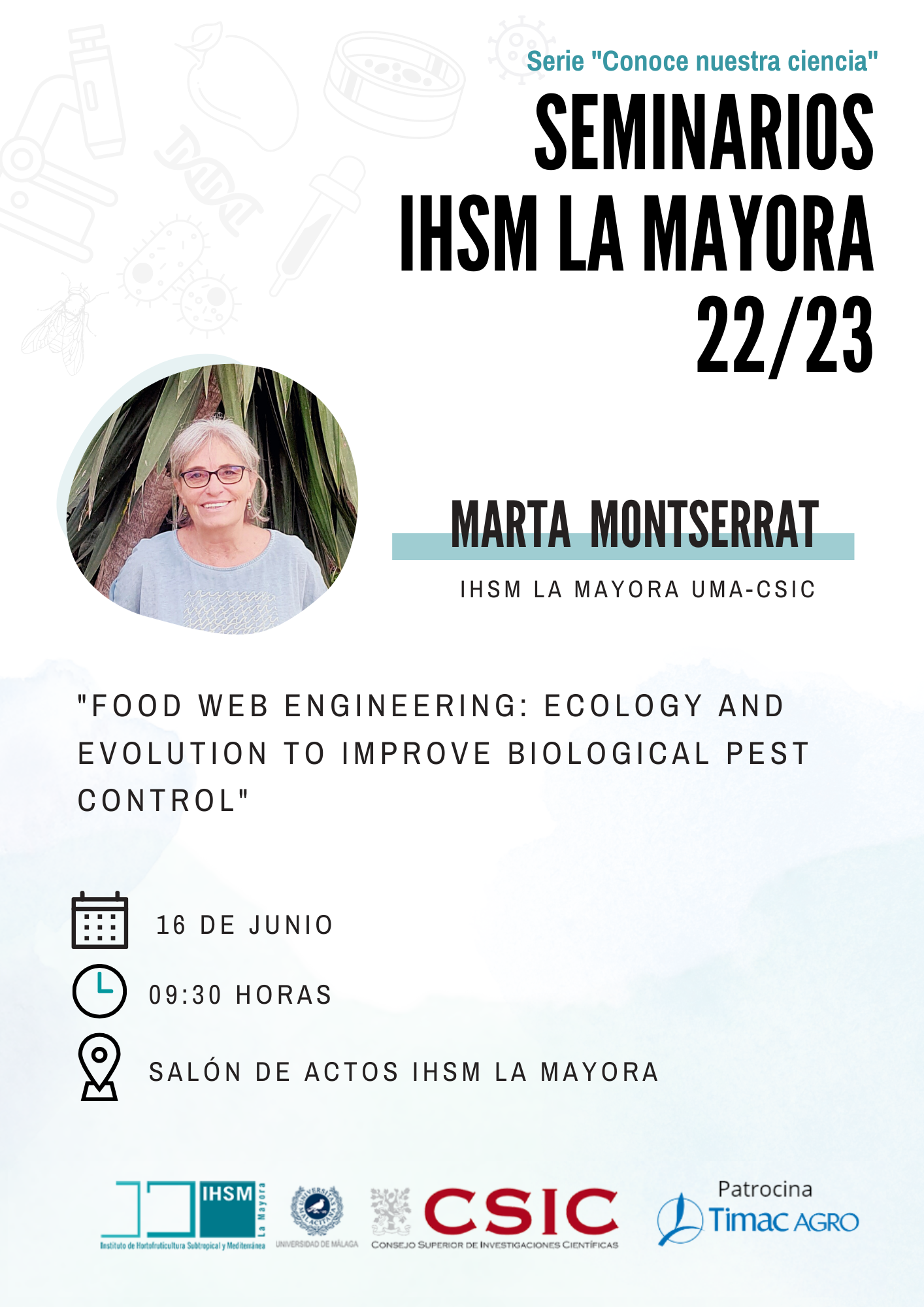
Seminarios IHSM La Mayora - Marta Montserrat
The 2030 United Nations agenda for sustainable development demands to assure food supply via the implementation of sustainable and resilient agricultural practices that strengthen agricultural systems capacity for adaptation to environmental change. A key component to achieve resilience and sustainability in agricultural systems is biological pest control (BPC, hereafter), that is, the use of biological control agents (BCAs, hereafter) to control the population of pests. The rate of failure of BPC, however, is estimated to be as high as 68 %, and we think that biotic (e.g. presence of other species that also interact with the BCAs) and abiotic (e.g. warming) stressors affecting negatively the performance of BCAs in the field are important causes of these failures. In this seminar I will, firstly, explain the rationale behind food web engineering (FWE, hereafter), which seeks to combine knowledge in evolutionary biology with that of food web theory to engineer webs that are efficient at keeping crop pests at bay, via exploiting the inherent intraspecific variability in the populations of BCAs to improve their performance when they are exposed to hostile environments. Secondly, I will present the latest results of experimental evolution and artificial selection carried out using the predatory mite Amblyseius swirskii, one of the most frequently used BCA at present, within the context of the research on FWE carried out in my lab.

